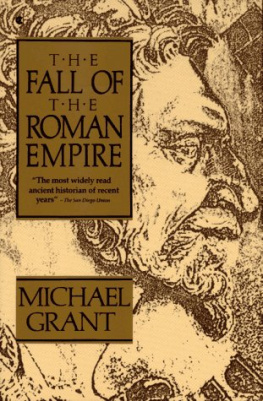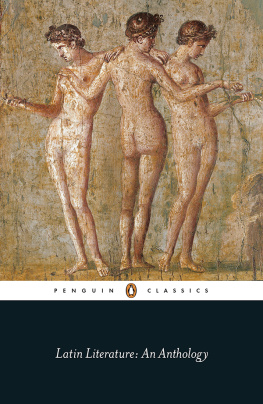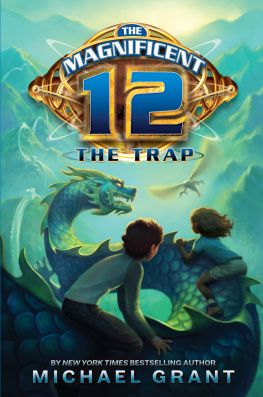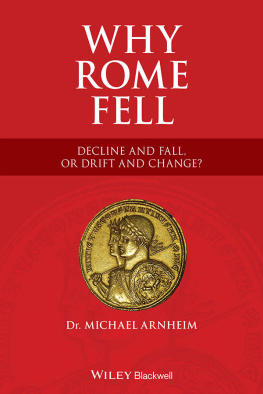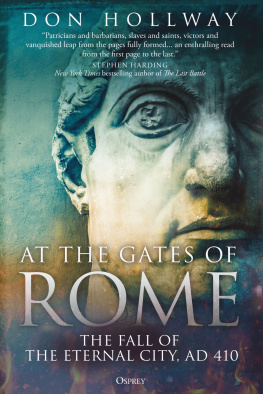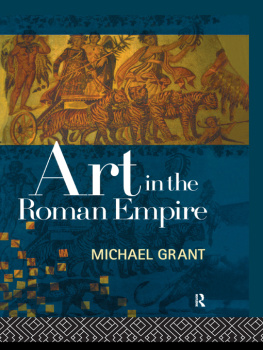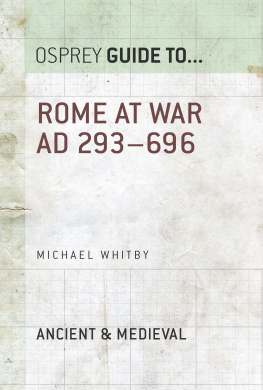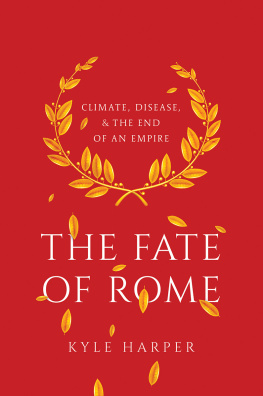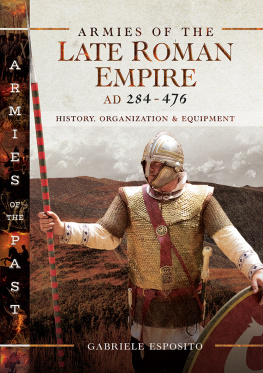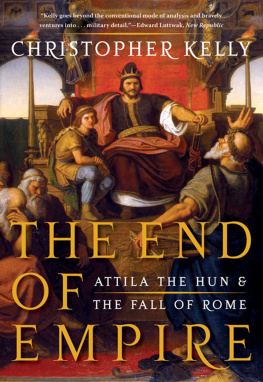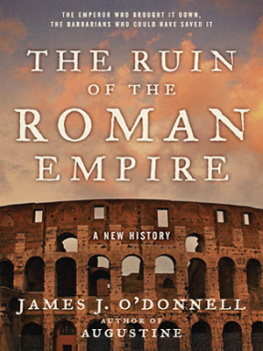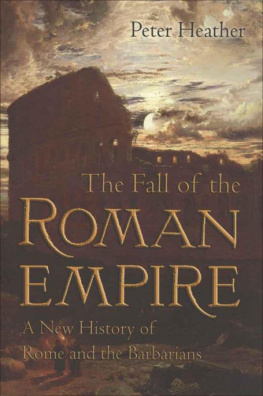| The Fall of the Roman Empire |
| Michael Grant |
| London : Weidenfeld Nicolson, 1996. (1990) |
| Tags: | Non Fiction, History
Non Fictionttt Historyttt |
SUMMARY:
History of the Roman Empire. Col. illus.
THE FALL
of the ROMAN EMPIRE
Michael Grant
WEIDENFELD AND NICOLSON
London
Copyright 1990 Michael Grant Publications Ltd First published 1976 by the Annenberg School Press
This revised edition published 1990 by George Weidenfeld and Nicolson Ltd 91 Clapham High Street, London SW4 7TA Photoset in 10 on 12 pt Palatino by Deltatype, Ellesmere Port, S. Wirral Printed in Great Britain by The Guernsey Press Co. Ltd, Guernsey, Channel Islands.
All rights reserved. No part of this publication may be reproduced, stored in a retrieval system, or transmitted, in any form, or by any means, electronic, mechanical, photocopying, recording or otherwise, without the prior permission of the copyright owner.
British Library Cataloguing in Publication Data Grant, Michael, 1914- The fall of the Roman Empire. - 2nd ed I. Roman Empire, 395-476 I. Title 937'. 09 ISBN 0-297-82008-7
And if a kingdom be divided against itself, that kingdom cannot stand. Gospel according to St Mark y.24
Then join hand in hand, brave Americans all: by uniting we stand, by dividing we fall. John Dickinson, 'The Liberty Song', Boston Gazette, July 1768
Yes, we must, indeed, all hang together, or most assuredly we shall all hang separately. Benjamin Franklin at the American Declaration of Independence, 1776
We cannot any longer afford the luxury of tearing ourselves apart. British politicians, 1973-5
Contents
List of Maps ix
Introduction xi
Acknowledgements xv
Historical Survey of the Roman Empire
/ THE FAILURE OF THE ARMY
The Generals against the State 2j The People against the Army 35
H THE GULFS BETWEEN THE CLASSES
3 The Poor against the State '51 The Rich against the State 695 The Middle Class against the State 80
III THE CREDIBILITY GAP
The People against the Bureaucrats 89 7 The People against the Emperor 100
IV THE PARTNERSHIPS THAT FAILED
Ally against Ally 113 9 Race against Race 124.
V THE GROUPS THAT OPTED OUT
Drop-outs against Society 145
11 The State against Free Belief 155
VI THE UNDERMINING OF EFFORT
Complacency against Self-Help 175
13 The Other World against This World 185
Appendix 1: Some Religious Disunities Appendix 2: Why Did the Eastern and
Not the Western Empire Survive? List of Emperors and Popes A Who's Who of Ancient Writers Some Books on the Decline and Fall Maps Index
List of Maps
The Western and Eastern Empires AD 395 (Inset) Boundaries of Praetorian Prefectures
2 The Barbarian Invasions of the Fifth Century AD
3 Europe after the Fall of the Western Empire AD 476
4 Italy
5 Gaul and the Rhine
6 The Upper and Middle Danube
7 The Balkans
8 The East
9 North Africa and Spain
Introduction
The fall of the Western Roman Empire was one of the most significant transformations (a favourite word for the whole process, especially in Germany) throughout the whole of human history. A hundred years before it happened, Rome was an immense power, defended by an immense army. A hundred years later, power and army had vanished. There was no longer any Western Empire at all. Its territory was occupied by a group of German kingdoms.
Hundreds of reasons have been suggested for the collapse of the Roman West. Some indication of their variety can be obtained from reading Edward Gibbon's superb and never truly superseded History of the Decline and Fall of the Roman Empire (1776-88). He lists at least two dozen supposed causes of that decline and fall - military, political, economical and psychological. Many of these 'causes' will be referred to in the pages that follow. But the historian himself made no attempt to marshal them one against another, or choose between them. That is rather disconcerting for the reader who is searching for quick answers. But it also shows a good deal of prudence. For an enormous, complex institution like the Roman Empire could not have been obliterated by any single, simple cause.
It was brought down by two kinds of destruction: invasions from outside, and weaknesses that arose within. The invasions are easy to identify, and they will be described in the preliminary section of the present volume. However, they were not sufficiently formidable in themselves to have caused the Empire to perish.
It perished because of certain internal flaws which prevented resolute resistance to the invaders: and the greater part of this book will be devoted to discovering those flaws.
I have identified thirteen defects which, in my view, combined to reduce the Roman Empire to final paralysis. They display a unifying thread: the thread of disunity. Each defect consists of a specific disunity which split the Empire wide apart, and thereby damaged the capacity of the Romans to meet external aggressions. Heaven forbid that we ourselves should have a monolithic society without any internal disunities at all, or any differences of character or opinion. But there can arrive a time when such differences become so irreconcilably violent that the entire structure of society is imperilled. That is what happened among the ancient Romans. And that is why Rome fell.
This theme has always attracted keen interest, largely because of the guidances and warnings it is supposed to offer to later generations, and this relevance has never seemed more visible than today. Britain thinks of its own vanished empire. The United States of America think of their current leadership, and of how it might be in danger of coming to an end. The Soviet Union seems to be showing at this very moment how smaller peoples break away from empires. France is the country where, in ancient times, this first happened. Germany spans the east-west border, and is very conscious of its ancient role as the destroyer of the Western Roman Empire. Italy is the country where that empire ruled and fell. And so on. I have not, in this revised edition, attempted to flag or discuss every echo, every similarity. But one or another of them, in various parts of the world, readily leaps to the eye.
I want to thank Mr Walter Annenberg, who invited me to write the original version of this book when he was the United States Ambassador in London, for his constant help and encouragement. I am also deeply grateful to the late Mr David H. Appel for his unfailingly constructive and sympathetic aid. I wish to express my profound appreciation to Mr Christopher Falkus for a great deal of stimulating, invaluable assistance. I owe acknowledgments to Mrs Enid Gordon, Mr Peter Quennell, and Miss Susan Reynolds for help that they have given, to the Annenberg School Press for preparing the first edition, and to Miss Jocelyn Burton who has, with constructive suggestions, produced this second, revised edition. And my wife's support has been indispensable.
MICHAEL GRANT
Gattaiola 1990
Acknowledgments
I would like to acknowledge the quotation of passages from ancient authors translated by W. B. Anderson, P. Brown, J. B. Bury, O. A. W. Dilke, C. D. Gordon, A. Hawkins, H. Isbell, D. Magie, F. X. Murphy, A. F. Norman, C. Pharr, R. S. Pine-Coffin, J. C. Rolfe, E. M. Sanford, E. A. Thompson, H. G. E. White, F. A. Wright and T. A. Sinclair.
HISTORICAL SURVEY OF THE ROMAN EMPIRE
The Roman Empire was of enormous dimensions, extending from the Atlantic to the River Euphrates, and from Britain to the Sahara desert. It was the greatest political achievement of ancient times, and one of the very greatest of all ages. Well might one of its own writers, Pliny the elder, speak of the 'immense majesty of the Roman peace'.

